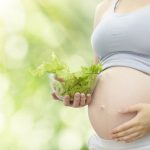A healthy diet for Pregnant Surrogates
BackPregnant woman’s nutrition plays a crucial role in a healthy pregnancy, baby’s growth and development. A number of women have certain food cravings during pregnancy. Sometimes craving indicates nutrients that body needs on certain stage, however, it is important to know to what extent to fulfill them and which foods are actually going to be beneficial.
As a surrogacy agency, we find it essential to explain the role of an adequate diet to the surrogate mothers and moms to be.
Folic acid or folate is a vitamin that helps to prevent neural tube defects. Neural tube defects affect baby’s brain, spine or spinal cord. Folate is an essential nutrient before and during pregnancy and can be taken in form of foods such as green leafy vegetables, pasta, seeds, avocado, carrots, fortified bread and cereals.
Calcium is a mineral that fortifies the bones and teeth, is essential for normal blood clotting. The baby consumes a lot of calcium during pregnancy as this mineral helps to build and develop the baby’s bones. When a pregnant woman does not get enough calcium from food, the organism will take it from her bones. Milk, yoghurt, cheese, kale, spinach, enriched breads, grains and orange juice are all rich sources of calcium.
Protein supports the baby’s growth, development of brain and heart. One can say that protein has the “building” ability and should be included in the diet throughout the pregnancy. Meat, fish, eggs, beans, peas and nuts are good sources of protein.
Iron is another essential mineral during pregnancy. It helps to carry oxygen to the baby. Iron deficiency during pregnancy can lead to anaemia. Iron also has the ability to strengthen the woman’s muscles and make pregnancy more active and energetic. Foods rich in iron include meat, fish, peas, beans. Vitamin C helps to absorb iron.
Fruits and vegetables in general are enriched with numerous vitamins and minerals. They contain vitamin C and folic acid that as already mentioned, are essential nutrients during pregnancy.
Pregnant women should avoid or ideally, completely limit the consumption of: raw fish, fish that contain high levels of mercury, cream cheeses, unpasteurized foods, undercooked eggs and more than one cup of coffee per day.
A diet for pregnancy does not mean a poor selection of food. In fact, in order to support a strong and healthy body, the diet has to be as diverse as possible.
